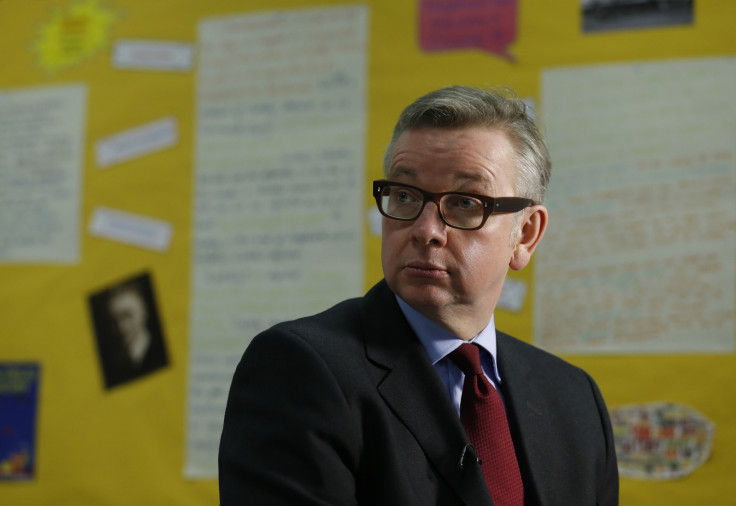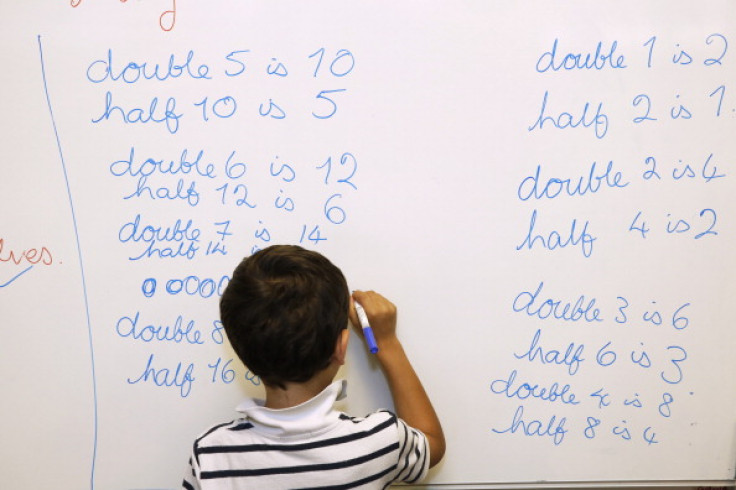Gamechangers: Let's follow the lead of Margaret Heffernan and Finnish our education system
I sometimes think I'm the only person in the country who doesn't hate Michael Gove. He did some great things: we have a brilliant local school as a result. But he wasn't perfect and his reforms, while perceived to be dramatic, were in many ways not bold enough.
Just for a moment hold your cynicism and play John Lennon's Imagine in your head.

Imagine our education system is the envy of the world. Imagine every 16-year-old leaves school able to write confidently, speak another language and calculate compound interest, while they are in possession of a solid working knowledge of chemistry, physics and biology (and not forgetting nutrition and health).
Imagine they leave understanding their own strengths and knowing the environments in which they thrive, so they can make good choices about the kind of work they should do or the kind of education they should pursue.
Imagine our private schools dwindling into havens for the super-rich from other countries, mooning wistfully at our state schools. Imagine the proudest words any parent could say are: "My son/daughter is a teacher."
Now cut the soppy music and let's get practical. What do we need to do?
Well, according to the many alternative education manifestos published by, among others, the Headteachers' Roundtable, the Policy Exchange and the National Association of Head Teachers (all reviewed by journalist Fiona Millar in the Guardian in April), the answers include reforming Ofsted, and for our teachers, a student loan repayment scheme and new professional qualifications. Yawn. Very worthy. Dull and uninspiring and lacking vision. Just like the worst teachers.
Forget dull manifestos and focus on A Bigger Prize
Instead, let's listen to Margaret Heffernan who, for her book A Bigger Prize, visited schools in Finland. She reports that they have no public exams before 18, no Ofsted, everyone goes to their local school and teachers are inspiring and adored. They have world-class outcomes along with the smallest gap between high and low achievers of any education system in the world.
I'd cite more details but I lent the book to my daughter's headteacher and haven't seen it since. Either she is as inspired as I am or she's used it to fuel the boilers.
The point about Finland is it made active decisions. It has a small population and realised it couldn't leave any child behind. As Heffernan puts it: "In the US and UK, we still seem to believe in trickle down: that celebrating a few high achievers will inspire the rest.
"This doesn't work in education any more than it does in economics. Finnish teachers really believe in their kids and believe that their job as teachers is to learn how to communicate with them." Who wouldn't want that?
It is time for us to take control, too. To stop debating grammars versus comprehensives versus free schools versus academies. Missing the point while thousands of children are being diminished by out-of-control classrooms and leave school appallingly short of skills. It is time to focus on what matters. And get radical.
Talkin' bout a revolution
Here are the first three actions for my education revolution, inspired by our Finnish friends.
Firstly, take education out of the ping-pong of party politics. Have an education committee representing all the parties and very experienced heads that debate and plan education for the country for the next 40 years. Focusing on great education everywhere and supporting teachers to give their very best would be key.

Secondly, make teaching the most elite profession to get into - bar none. Not depending just on academic success but on a passion for learning and the ability to connect powerfully with children and young adults.
Thirdly, to support that, create the best possible benefits for being a teacher. Free access to ongoing education for the rest of their careers, pay on a par with the judiciary (let's spend money preventing the problems rather than ruling on them later), free flights to interesting places, free books through a special "Amazon" tax... Whatever it takes.
I've read the decline in our education system precisely mirrors the rise in career options for women. When my mother graduated, her mother deemed a graduate career as a buyer at John Lewis too racy and pushed her into teaching. She was bright and hard working and she was an excellent teacher. Who would advise their son or daughter to make that same choice now?
It's time to build an education system that shines. Even in comparison to a John Lewis kitchen showroom.
Christine Armstrong is a contributing editor of Management Today, author of Power Mums (interviews with high-profile mothers) and founder of www.villas4kids.com. She can be found on Twitter at @hannisarmstrong.
© Copyright IBTimes 2024. All rights reserved.






